5 Ways to Get a Free Week’s Stay in Croatia's Dream Destinations
February 24th, 2022 - If you happen to love spending time outdoors and have a few days to spare this spring or summer, Croatia’s national and nature parks offer amazing volunteering opportunities that involve a free week’s stay in some of the most spectacular locations in the country
We prepared a selection of five attractive volunteer programmes that are 5-10 days long and require up to 6 hours of work a day, with free accommodation, meals and transportation provided to participants. English speakers are encouraged to apply, as knowledge of Croatian isn’t a requirement for any of the following roles:
1. Dry Stone Restorer in Mljet National Park
Become a guardian of the past by restoring ancient dry stone walls in Mljet National Park. Traditional dry stone construction is inscribed in the list of intangible cultural assets of the Republic of Croatia, which means you’d literally help restore and preserve precious cultural heritage on Mljet island!
Volunteers will learn how to build and fix up walls, stairways and other dry stone structures. The job also involves clearing existing dry stone structures of vegetation, simple processing of stone using hand tools, and photographing dry stone walls before and after restoration.
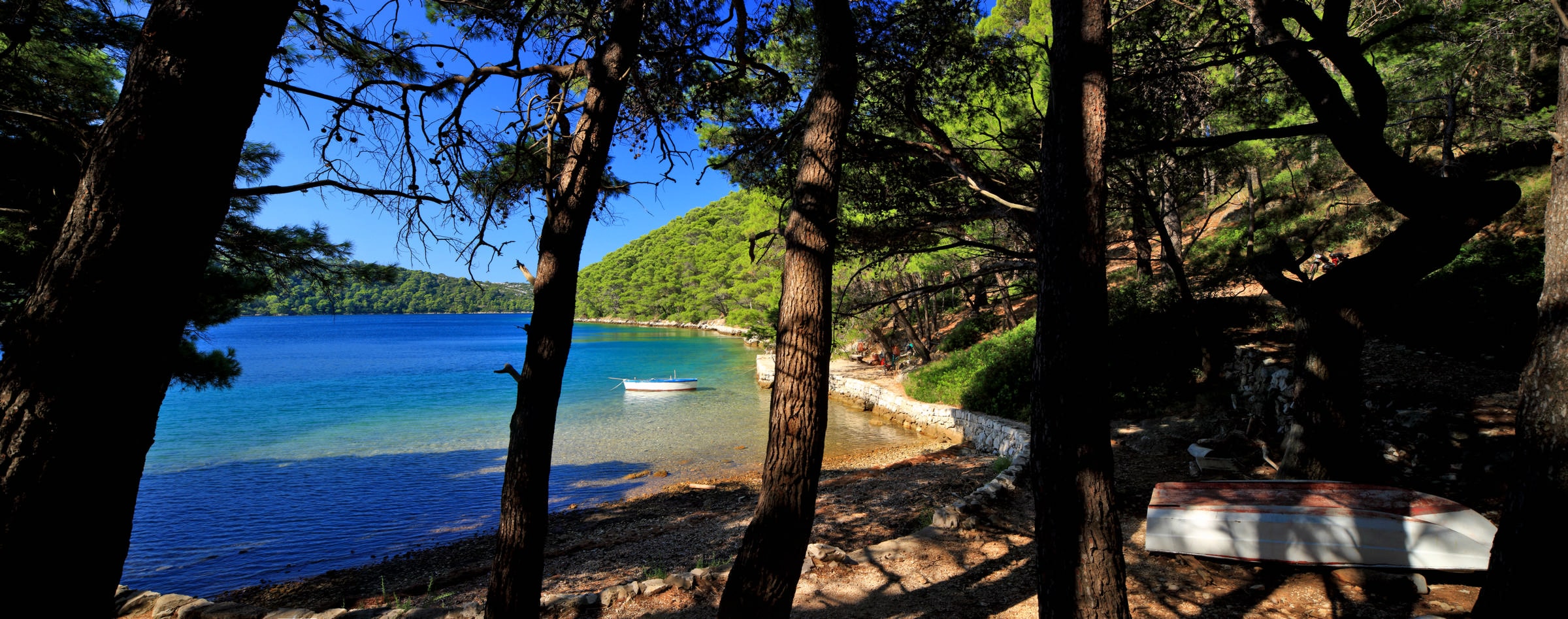 Mljet island / Photo © Mario Romulic
Mljet island / Photo © Mario Romulic
The programme takes place in April and is seven days long, including six days of work and one day off. Volunteers are expected to work six hours a day with a one-hour break, but considering that the physical work involved in this particular programme can be strenuous, the number or working hours can be reduced if needed.
All necessary tools will be provided by the Park. Accommodation is provided free of charge on Mljet island in the Collier building owned by the Park, which has seven rooms equipped with bunk beds, toilets, showers, a kitchen and a living room. Meals are also provided free of charge, with the Park delivering groceries to volunteers or providing free meals at the local hotel.
If stonemasonry isn’t your cup of tea and you’d prefer a less hands-on kind of creative work, may we suggest another volunteer programme on Mljet island:
2. Photo Amateur in Mljet National Park
A dream come true for anyone who loves island hopping and snapping pics of stunning landscapes (don’t we all?), this programme involves photographing the scenery and events in Mljet National Park in the period between April and June.
Depending on the time of year, volunteers will be required to photograph various locations, events and activities on Mljet island using their own gear. You’ll be capturing the island’s flora and fauna, cultural monuments and landmarks, historic sites, enchanting landscapes and fun summer events.
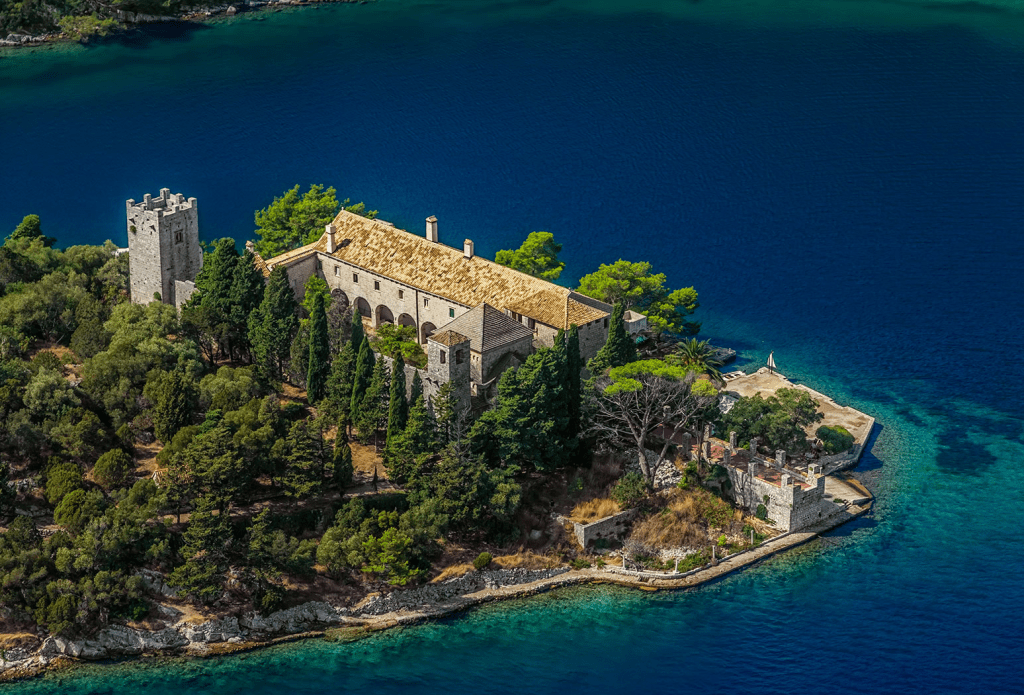 Mljet National Park / Photo: volonteri.parkovihrvatske.hr
Mljet National Park / Photo: volonteri.parkovihrvatske.hr
Those who choose to participate in this particular programme will sign a statement of the assignment of the photos to Mljet National Park. You’ll have to submit the photos shortly after the programme is over, and can look forward to seeing them featured in the Park’s publications in Croatia and abroad.
A minimum of one DSLR camera with a lens is required to partake in this programme.
You’ll have plenty of time to explore the island on your own time, and there’s no shortage of things to do: there are over 40 kilometres of hiking and cycling trails, you can rent a kayak or canoe to explore the saltwater lakes on Mljet, or take diving lessons with a certified instructor.
For all Mljet-based programmes, volunteers are to bear the cost of travel to Mljet island, and the Park will provide transport from the ferry port on Mljet to the place of accommodation.
3. Gull Catcher in Kornati National Park
Are you a fan of the great outdoors and love being in close contact with wildlife? Consider becoming a seagull catcher in Kornati National Park. Don't worry, you'll be releasing them too!
You’ll be joining the Park’s experts as they band and monitor Caspian gulls in the stunning Kornati archipelago, specifically on a few islands where seagulls are known to nest.
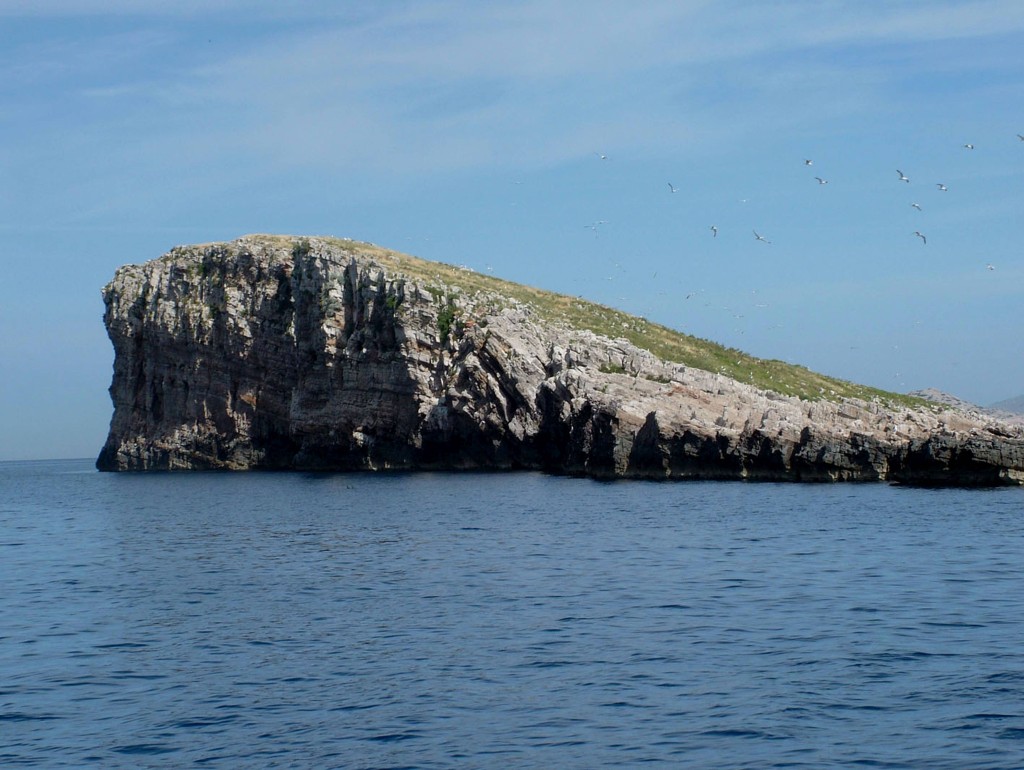 Kornati National Park / Photo: volonteri.parkovihrvatske.hr
Kornati National Park / Photo: volonteri.parkovihrvatske.hr
Do you dare to catch a young gull with your bare hands? If you do, you get to name the bird and take notes as it gets banded by a qualified employee of the Park. Banding and monitoring allows experts to track the behaviour and habitats of seagulls in order to collect data used to ensure protection of the species.
Volunteers will receive training prior to starting work and will be supervised by the Park staff. The programme takes place in May and June lasts about ten days, with volunteers expected to work seven hours a day.
Accommodation is provided and free, and in this case, it’s pretty amazing: you’ll be staying on a sailboat owned by the National Park Kornati, fully furnished and featuring 3 cabins, 6 beds, a living room, kitchen and toilet.
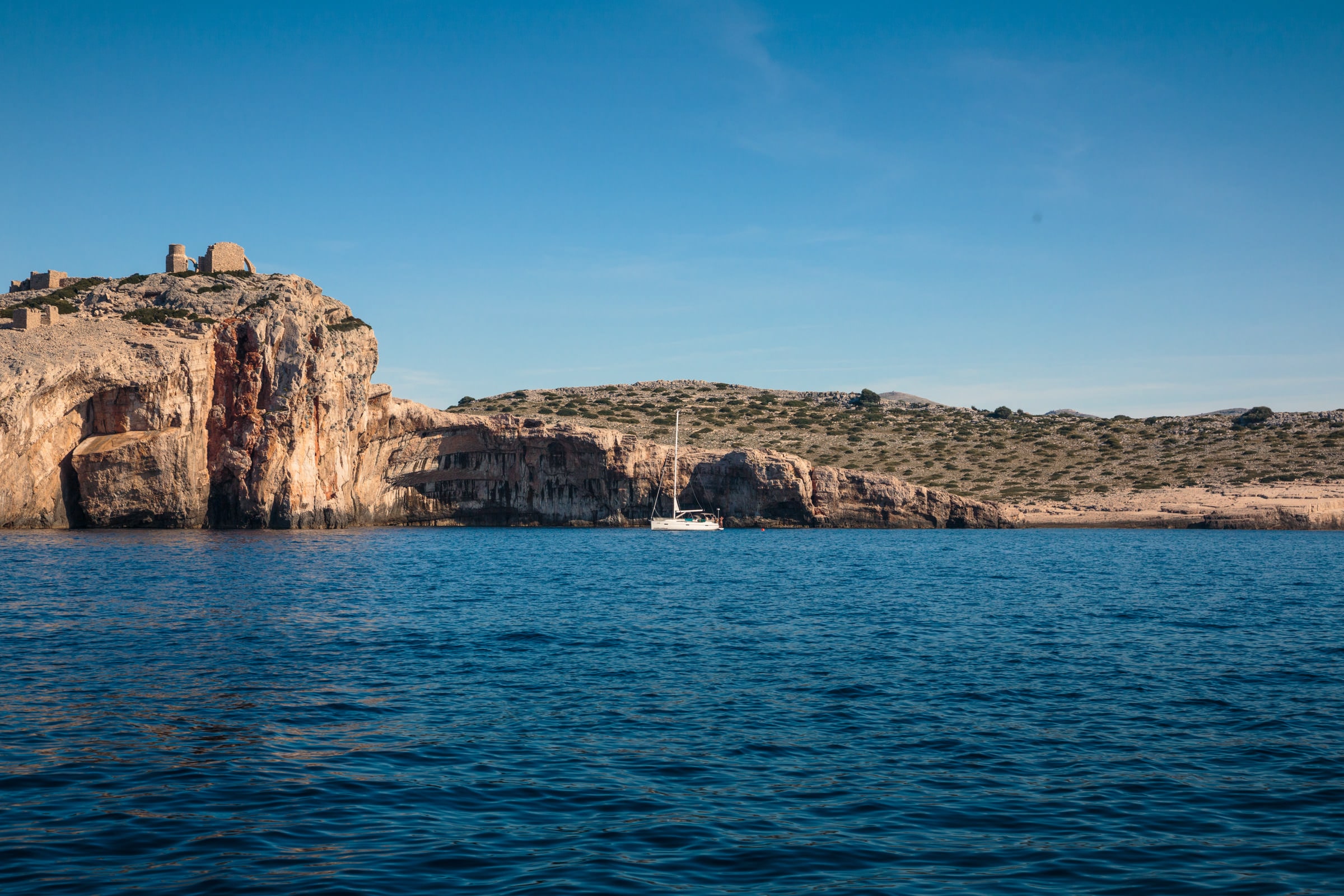 Kornati National Park / Photo © Mario Romulic
Kornati National Park / Photo © Mario Romulic
Groceries are provided free of charge, and volunteers can either prepare meals on their own or seek the help of the volunteer manager.
Volunteers have to arrange transportation to Murter island, while further transport from Murter and within the Park area is organised by the Park and free of charge.
4. Traditional Gardener in Lonjsko Polje Nature Park
Lonjsko Polje (Lonja Field) is the largest protected wetland in Croatia, located approximately 70 km south-east of Zagreb.
If you have a green thumb and don’t mind getting your hands dirty, you’d be a great fit for a traditional gardener in Lonjsko Polje Nature Park. You’d help clean up the untended plots in the Park and plant new seedlings around traditional wooden houses in the villages of Krapje and Čigoč - think of it as traditional landscape design!
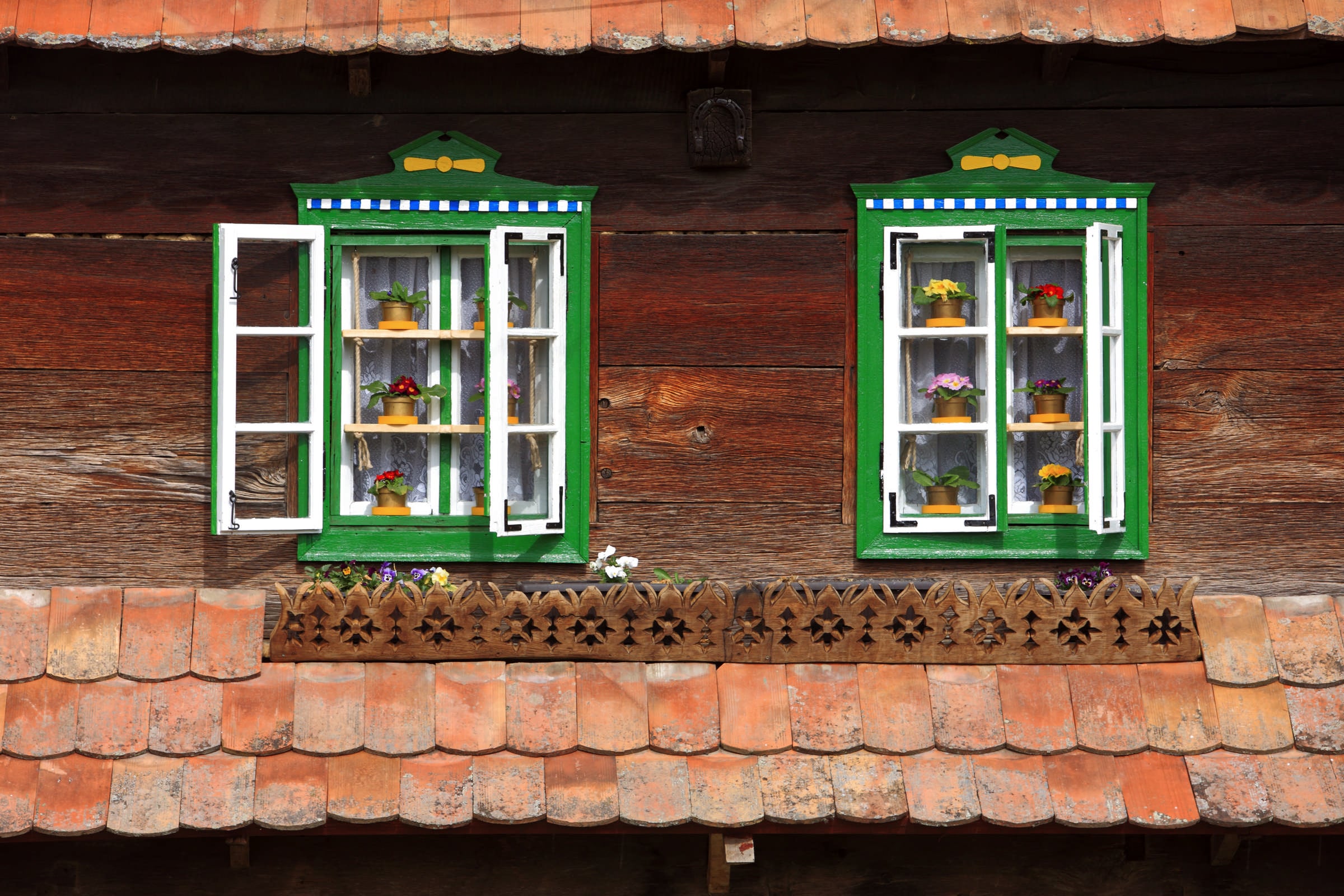 Lonjsko Polje Nature Park / Photo © Mario Romulic
Lonjsko Polje Nature Park / Photo © Mario Romulic
The programme takes place in April and lasts five days, six hours of work each.
Accommodation is provided free of charge in a dormitory in Krapje. The facility is equipped with a small kitchen and a bathroom, and has central heating. As volunteers will be sleeping on spare beds, they are required to bring their own sleeping bags. Groceries are provided free of charge, and bikes and vehicles are available to use for transportation within the Park.
5. Guardian of Plant Biodiversity in Brijuni National Park
There’s not much need for gardening on Brijuni islands - domestic wildlife and imported species such as mountain zebras and mouflons take care of landscaping by nibbling away at the grass at all times.
There’s a single item on the menu that the animals don’t like: a spiky flower called Spanish oyster thistle. Since the wildlife practically mows the lawn, it removes all natural obstacles that would prevent the spread of the Spanish oyster thistle, allowing it to take over whole areas that would otherwise be home to other plants.
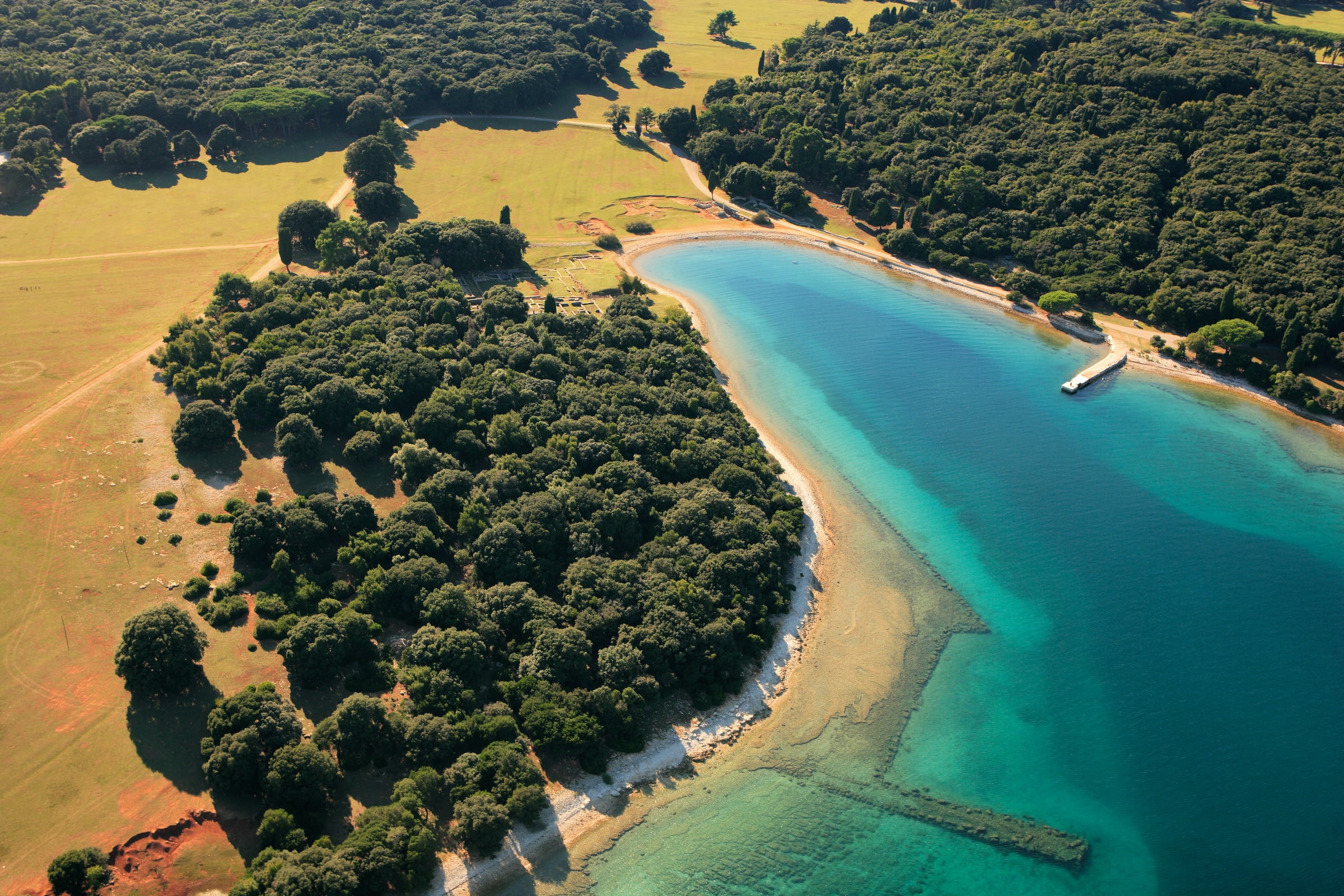 Brijuni islands / Photo © Mario Romulic
Brijuni islands / Photo © Mario Romulic
As a volunteer, you’ll help maintain the biodiversity on the meadows of Veliki Brijun island by keeping the pesky thistle in check. You’ll be removing the aggressive plant using provided gardening tools.
Volunteers are needed in the month of May and are required to put in 6 hours of work daily. Beyond that, the islands are yours to enjoy: explore the Safari and Ethno Parks, rent golf equipment and play on the golf course opened in 1922, or go for a swim at one of Brijuni’s pristine beaches.
The Brijuni are also a nice jumping off point for trips in Istria. Discover the ancient Roman monuments in Pula which is located only 7km away from Fažana, or visit the picture-perfect city of Rovinj.
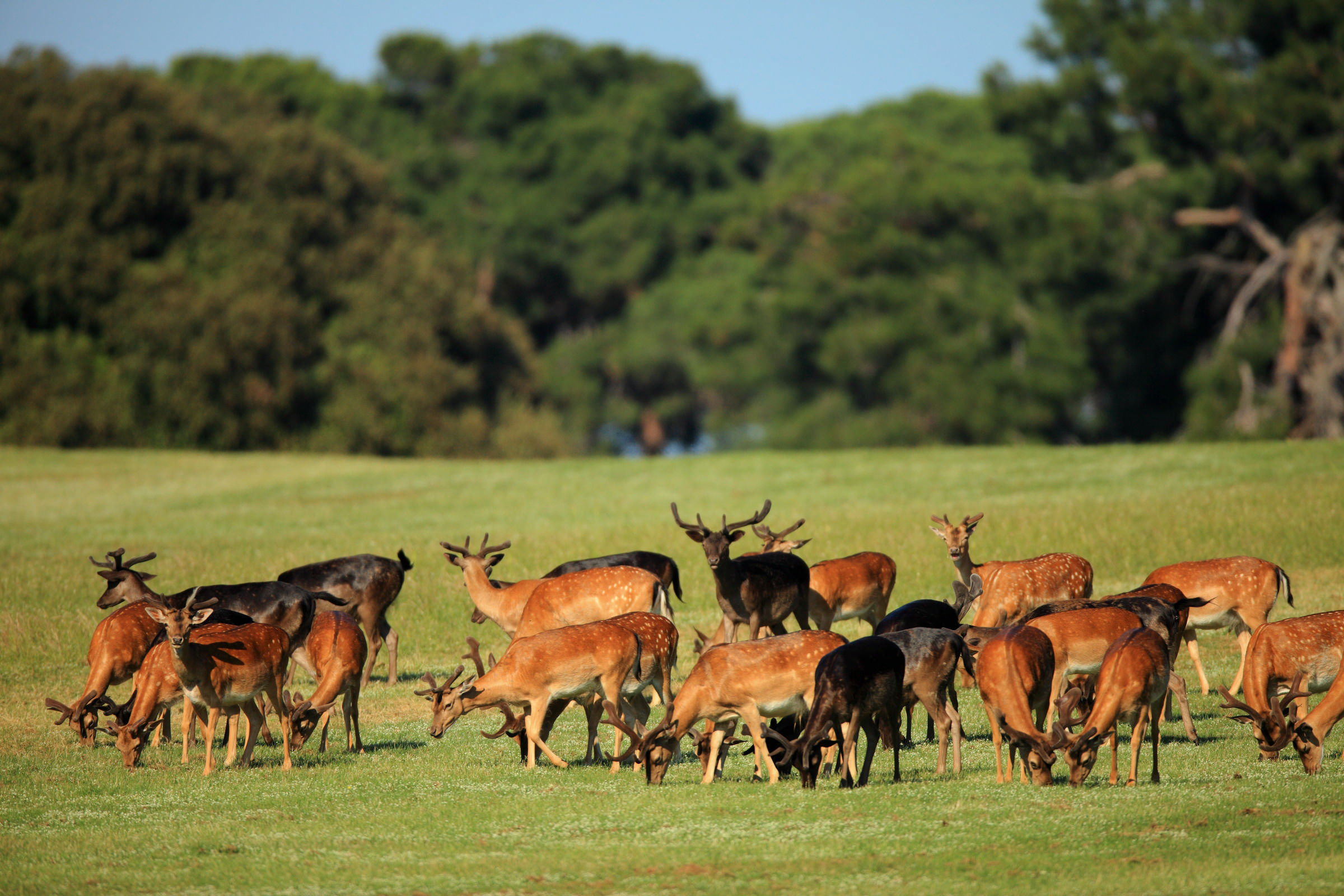 Wildlife on Brijuni islands / Photo © Mario Romulic
Wildlife on Brijuni islands / Photo © Mario Romulic
Accommodation is provided in one of the apartment buildings on Veliki Brijun island that are owned by the Park. Apartments are equipped with toilets, bathrooms, and a kitchen; rooms are shared with one or two other volunteers.
Groceries are provided free of charge and delivered to the apartment building, and one meal a day is also provided free of charge in the workers’ restaurant.
Volunteers have to arrange transport to Fažana town, and boat transportation to and from Veliki Brijun island is organised by the Park free of charge for the duration of the volunteer programme.
***
Applicants who don’t speak Croatian must be able to speak English in order to communicate with the park authorities and volunteer coordinators.
You can find more information about these and other volunteer programmes on the website Volunteer in Parks of Croatia.
Looking to apply? Fill out this form (in English), pick a programme you like and specify when you're free to participate, and the relevant programme coordinators will get back to you.
Please note that some of the programmes might not be accepting applications for the time being, or might be otherwise affected by epidemiological measures.
Check out our comprehensive Guide to the Nature and National Parks of Croatia.


